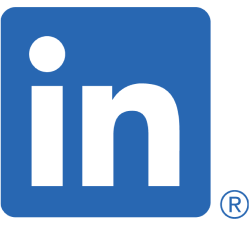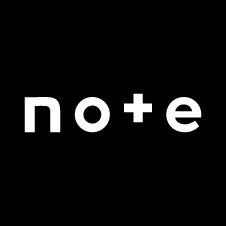Masanari Hamada
Developing an open and inclusive web has been my life’s work.
I hope to enhance the developer experience for everyone in the company.
Developing an open and inclusive web has been my life’s work.
I hope to enhance the developer experience for everyone in the company.
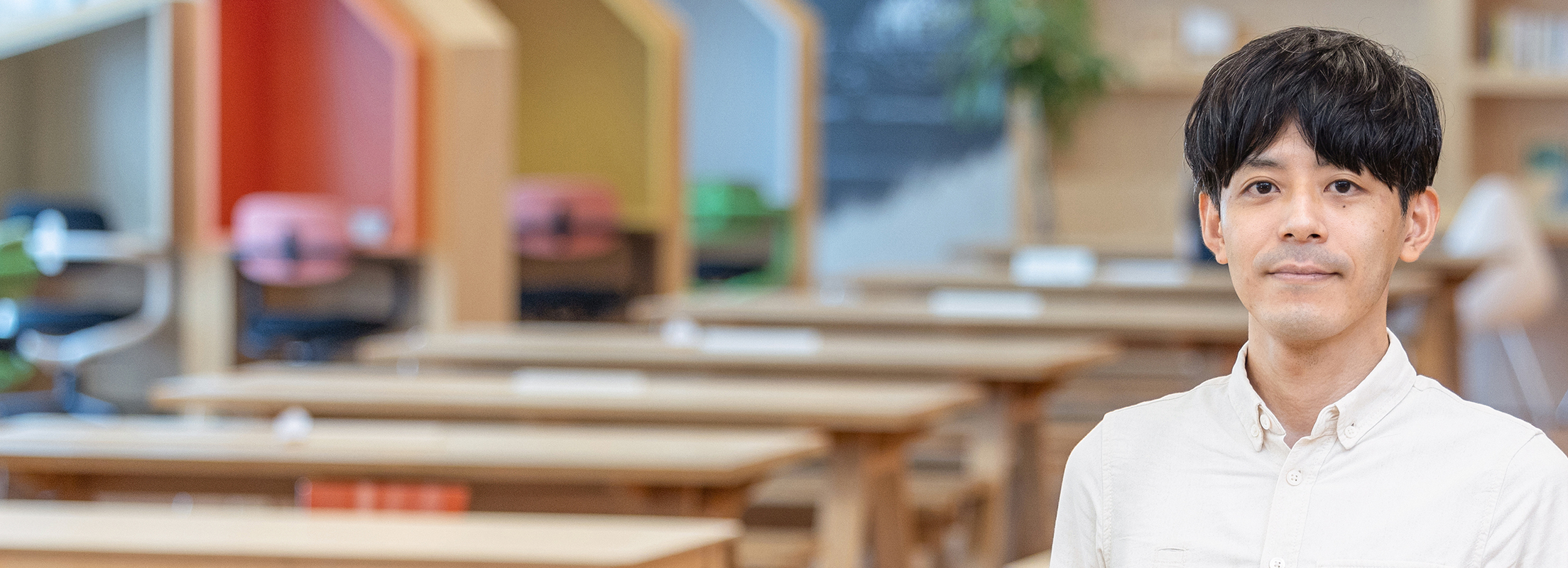
Masanari Hamada (joined in 2015)
When Masanari joined Yahoo Japan Corporation as a new graduate engineer, he was assigned to GYAO! and primarily worked on frontend development. In 2020, he took on a concurrent role in the CTO Office and helped improve service performance across the company. Since 2023, Masanari has been given the additional task of developing the Yahoo! JAPAN homepage.
*This article is based on an interview from July 2023. Service names and affiliations were current at the time.
Please introduce yourself.
My name is Masanari Hamada. I joined Yahoo Japan Corporation in 2015 as an engineer. In school, I studied in the Department of Design, initially focusing on book and poster design. However, I became interested in web development after learning web design, and this led me to pursue a graduate degree in informatics. What fascinates me about the web is its openness—technical specifications are shared transparently through the Worldwide Web Consortium (W3C) while open-source software (OSS) fuels continuous innovation by pooling the talent of many developers. I enjoy this dynamic process and am always excited when new technologies emerge.
When it came time to start my career, I was focused on finding a job that would be both meaningful and enjoyable at a company where I could build products. Ultimately, I chose Yahoo Japan Corporation because I liked that the company builds and operates a diverse range of services that are deeply rooted in people’s everyday lives. I felt it would be the perfect place to bring my ideas to life.
After joining the company, I was assigned to GYAO! (closed in 2023) where I worked on a variety of tasks, primarily frontend, including redesigning the video player and app. Later, I became the developer lead for videos and helped revamp Yahoo! JAPAN Movies and Yahoo! JAPAN TV. Wanting to contribute to more services, I asked to have a concurrent role in the CTO Office so that I could help make service performance improvements across the company as a secondary assignment.
I was delighted when my work in the CTO Office was recognized, and I was honored as the 11th and 12th Black Belt Web Frontend Engineer in the company’s KURO-OBI program celebrating engineers and designers with outstanding knowledge and skills in specific fields. Then, much happened in 2023, including the closure of GYAO! and starting to develop the Yahoo! JAPAN homepage. Today, I remain committed to enhancing the frontend developer experience across the company and advancing technical standards.
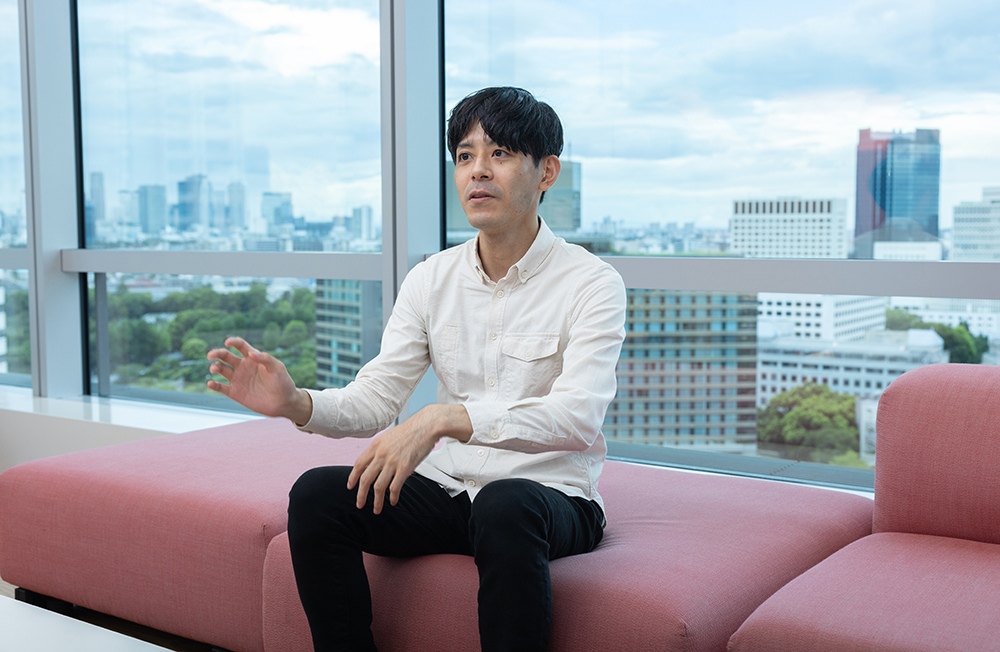
Could you please describe your main responsibilities and the specific workflow you follow?
In the CTO Office, we work on company-wide performance improvement initiatives. After Google announced in 2021 that Core Web Vitals would become a ranking signal in search results, many companies, including Yahoo Japan, have prioritized enhancing website loading speed. For instance, we recently increased the bfcache hit ratio, and tests on Yahoo! JAPAN News have shown a 9% boost in ad sales on certain devices. If you’d like to learn more, please read the Yahoo! JAPAN Tech Blog (Japanese only), or Google’s web.dev where this achievement has also been featured.
Adjusting the bfcache hit ratio is one example of my team’s day-to-day work, which is really about making continuous, small improvements by identifying and addressing potential bottlenecks that collectively lead to overall performance gains. With that said, because Yahoo Japan operates close to 100 services, sometimes services that could use performance improvements lack the appropriate environment for analysis. In such a case, we would start off by developing analysis scripts and plugins.
In the team responsible for developing the Yahoo! JAPAN homepage, my role is less about writing code and more about supporting other engineers such as by providing technical guidance. Right now, we’re exploring a new technology, and I’ve been the one coordinating team discussions and technical research. Coworkers often ask me how I stay up to date with the latest technical trends, and I usually tell them that I mostly follow social media and discussion forums related to web browsers.
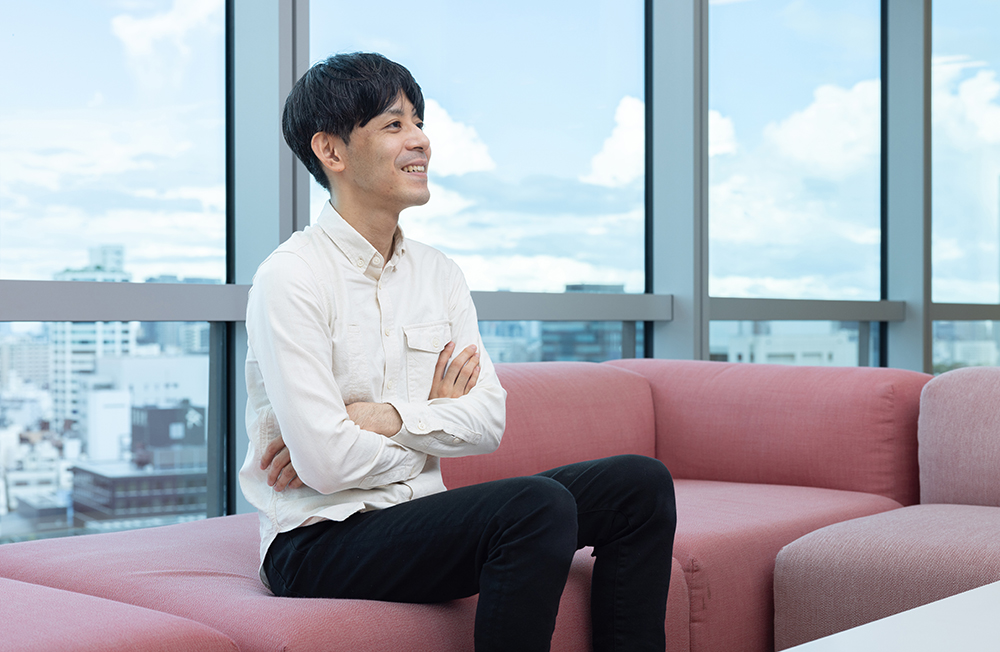
Example of a Daily Schedule
- 9:30 am
- Start work
- 11:00 am
- Morning stand-up
- 11:30 am
- CTO Office meeting
- 12:00 pm
- Lunch
- 1:00 pm
- Regular tech meeting
- 2:00 pm
- Development work
- 4:00 pm
- Architecture discussion meeting
- 5:00 pm
- Development work
- 7:00 pm
- End of work
Whether working on company-wide performance improvements or developing Yahoo! JAPAN, there are many stakeholders involved, which is why I make sure that everyone’s understanding is aligned during meetings as we determine development directions and then implement plans accordingly. While technical challenges used to be my primary obstacle, my recent challenges have been more organizational, such as how to coordinate smoothly with all stakeholders.
What do you keep in mind at work?
I actively seek opportunities to present technical topics to external audiences, including regularly writing tech blogs and speaking at both internal and external events such as PWA Night and Tech-Verse. These activities help me assess whether my current work is progressing to a point where it’s ready to be shared. While preparing presentations requires effort, it helps me organize my thoughts, and the more public speaking I do, the more visibility I gain. Initially, I mostly volunteered for lightning talks (LTs), but lately, I’ve been invited to speak at larger tech events, which led to an offer to publish a book. This journey has added depth to my engineering career.
I’m someone who thrives not just by completing assigned tasks, but by continually growing my skills in the areas I’m passionate about. That’s why I make it a priority to ensure that my current work environment supports this ongoing development.
Could you share any interesting or challenging experiences you've had while working?
There are so many to choose from, but the one that stands out for me is the company-wide performance improvement project that’s been going on since 2020. I was entrusted with a key initiative that impacts the whole company, and I’m proud of the consistent progress we’ve made. The project perfectly embodies what it means for me to accomplish meaningful work while growing in the area one is truly passionate about.
The goal of the project isn’t just to achieve short-term improvements, but to embed a culture of continuous improvement within the workplace. I believe we are gradually making progress in that direction. While one approach to making company-wide performance improvements is to promote general improvement strategies and have each service implement them individually, this often leads to slow progress. That’s why my teammates and I chose to take a more innovative approach.
To be exact, we analyzed the source code of each service to identify performance bottlenecks, devised solutions, prioritized them, and gave our best recommendations in view of potential return on investment and impact on performance. For example, for a service with slow initial load times, we recommended modularizing the initial screen and using lazy loading for analysis scripts. For a service where images were a key factor, we suggested prioritizing image loading and optimizing image sizes for different devices. By tailoring our solutions to each service's needs, we enabled teams to take more effective actions, and the results gradually became evident.
This project has enhanced my technical skills in identifying and resolving performance bottlenecks, while also giving me a chance to learn how to effectively promote a cross-organizational project.
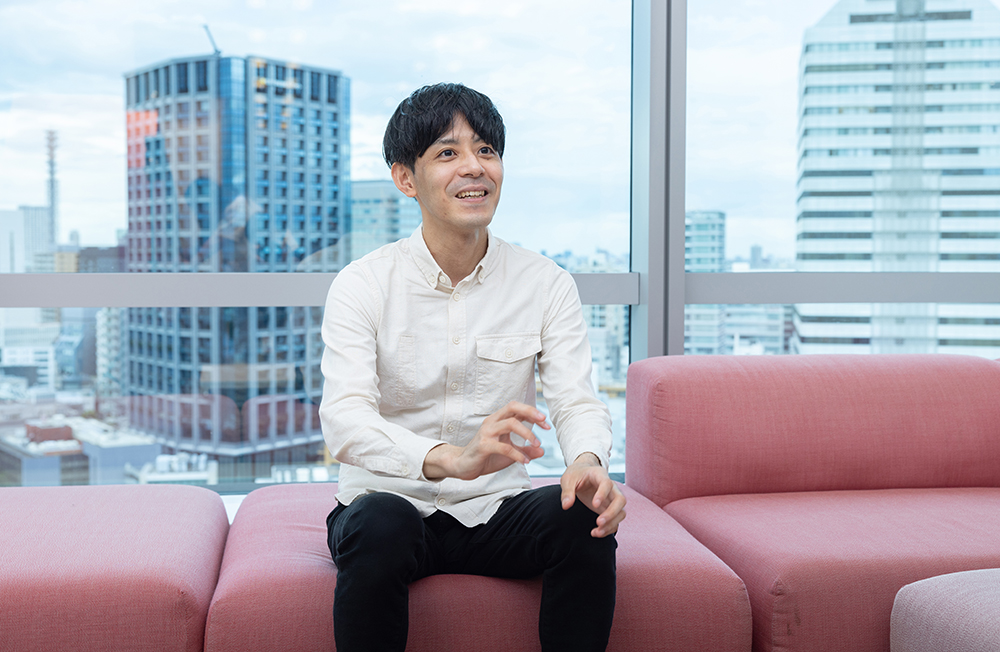
What do you hope to gain from working as an engineer at LY Corporation, including experiences?
Because many of the company’s services are deeply integrated into people’s daily lives, I think getting to develop products that directly benefit users will be a rewarding experience for engineers. I’d say the development culture here is non-hierarchical, and one that encourages open discussions. I feel that there’s also a strong emphasis on experimentation, as seen in initiatives like in the example of the bfcache hit ratio. I believe many engineers would find it both rewarding and meaningful to contribute to building one of the most accessed websites in Japan.
That being said, when a company has a large, proprietary system, you can’t simply rush to incorporate every new technology that emerges. Integrating new technologies often requires careful consideration and discussions. However, I’ve noticed that lots of people here view these constraints as an exciting challenge and approach them with a positive mindset. As long as we can stay creative, there’s always room for new ideas to be introduced. I believe this will be part of the unique work experience at LY Corporation.
What skills and experience would you say are required for engineering positions?
I believe the most skilled engineers are those who actively seek out and solve problems that need to be addressed. In our daily work, tasks and issues inevitably pile up, often things that need fixing later. If you limit yourself to just the scope of your assigned projects and ignore these growing issues, you’ll become an engineer who only completes assigned tasks. On the other hand, those who take the initiative to identify problems, set their own goals, and take action are the ones who will truly grow.
As for technical skills, if you're proficient in at least one general programming language, switching to another language after joining the company should be straightforward. If you’re interested in web development, having a basic understanding of web browsers and web APIs should make the work more enjoyable and manageable for you.
What are your expectations for LY Corporation, and what are you looking forward to in the future?
Engineers from Yahoo Japan and LINE have already been interacting at events like the joint tech conference Tech-Verse, and I’ve found LINE’s technical stack to be quite intriguing. Thinking of ways to incorporate new technologies to improve the developer experience at LY Corporation has been both exciting and challenging as I feel responsible for leading this effort. While there are differences in the two companies’ development cultures, I am confident that we can combine the strengths of both to create an even better development environment.
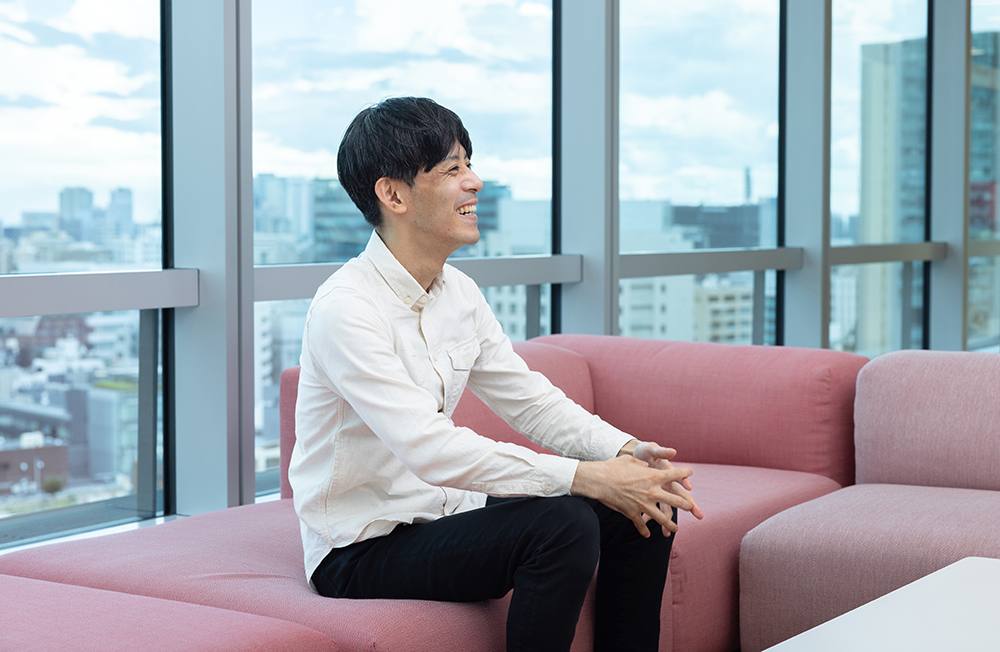
What are your future goals?
As you earn trust, you're given bigger projects—that’s the essence of work. In that sense, after being named a Black Belt Web Frontend Engineer, I feel I've gained recognition within the company. My next goal is to become a more widely recognized and trusted engineer, both within the industry and in the public eye. When I survey the broader world, I see so many engineers who have achieved remarkable things. They inspire me to set higher goals for myself too and contribute to work that leaves a meaningful impact.
Please share a message to our readers
My passion for the web began when I was a student, and it still continues today. My job here is a great fit for me because it allows me to gain diverse work experiences and develop products that directly benefit people. I love that I am able to deliver value to users through the web—something that serves so many and allows for free and open discussions. If this resonates with you, come join me at LY Corporation!
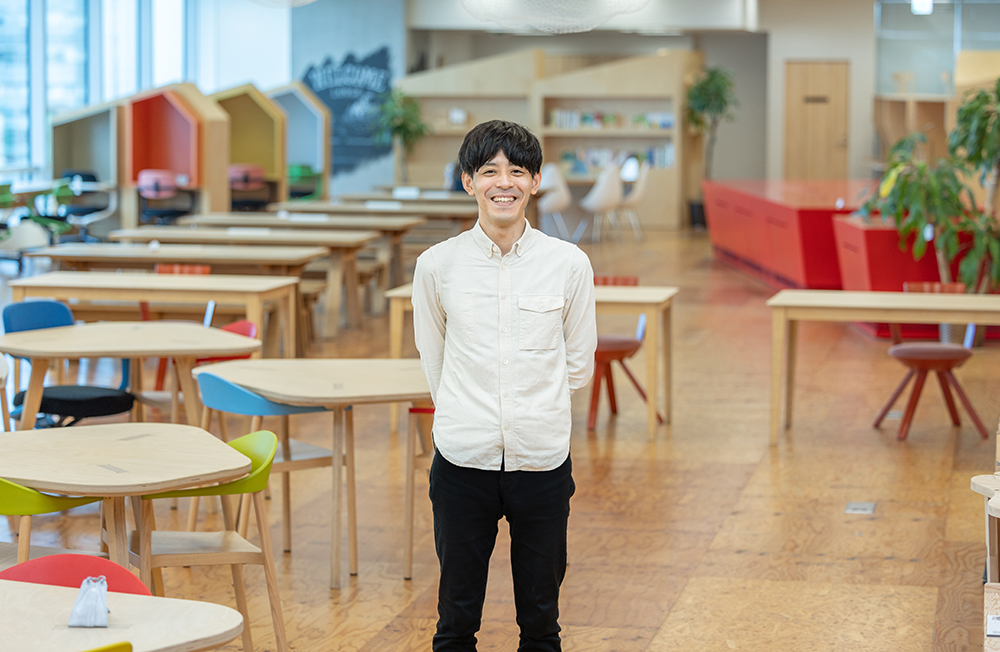
Related Links
Related interviews
-
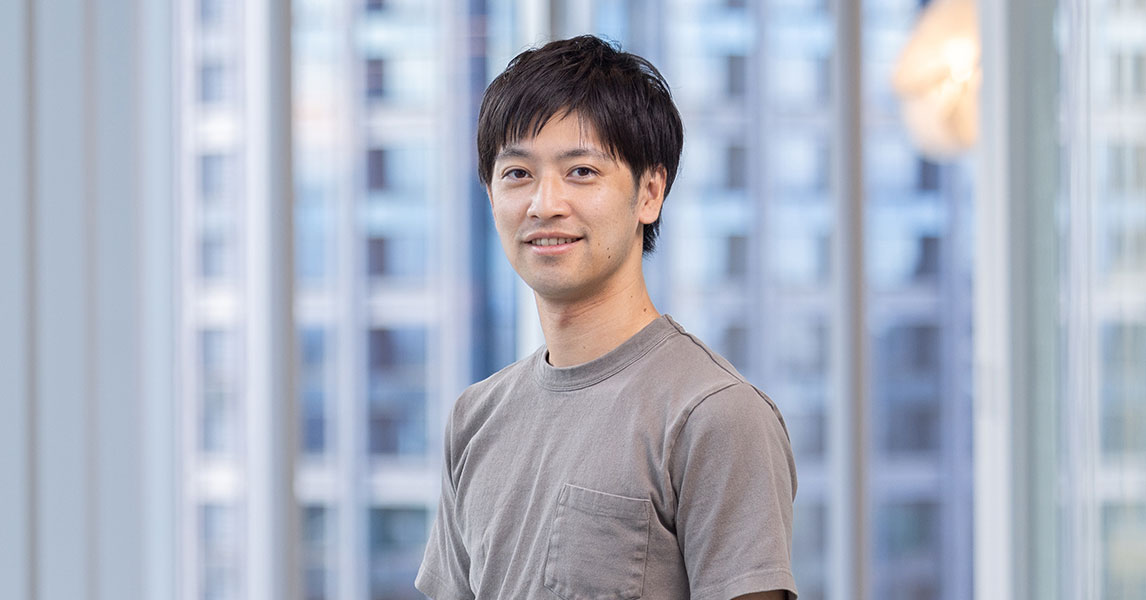 Yusuke Takeda
Yusuke TakedaSearch technology will continue to evolve! The thrill of developing one of Japan's largest search functionalities.
-
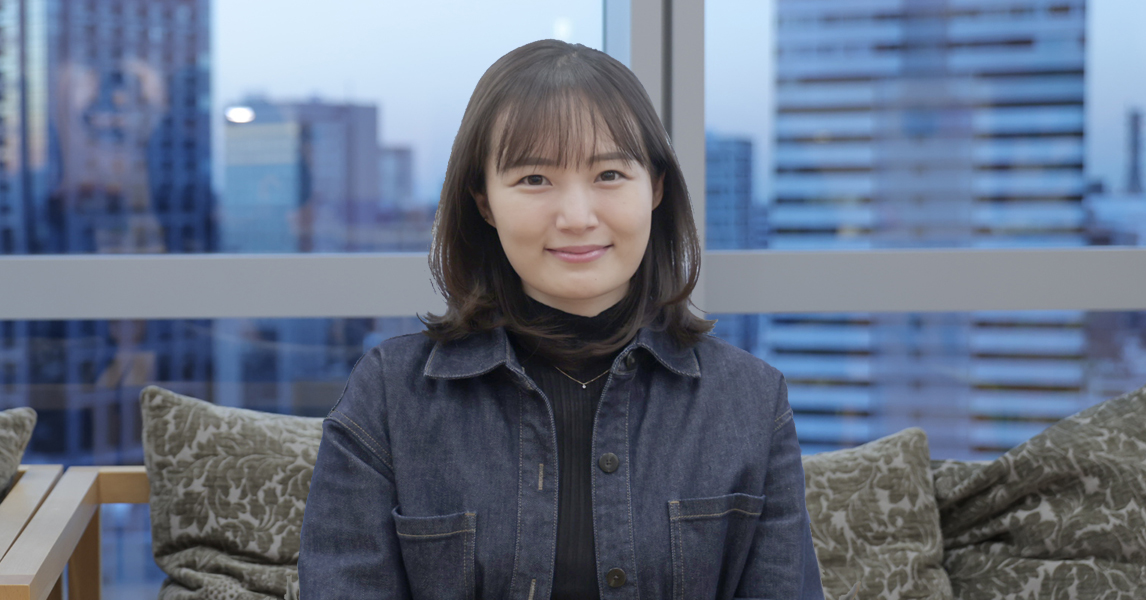 Lee Yoonyoung
Lee YoonyoungI wanted to work for a company with the largest user base in Japan.
-
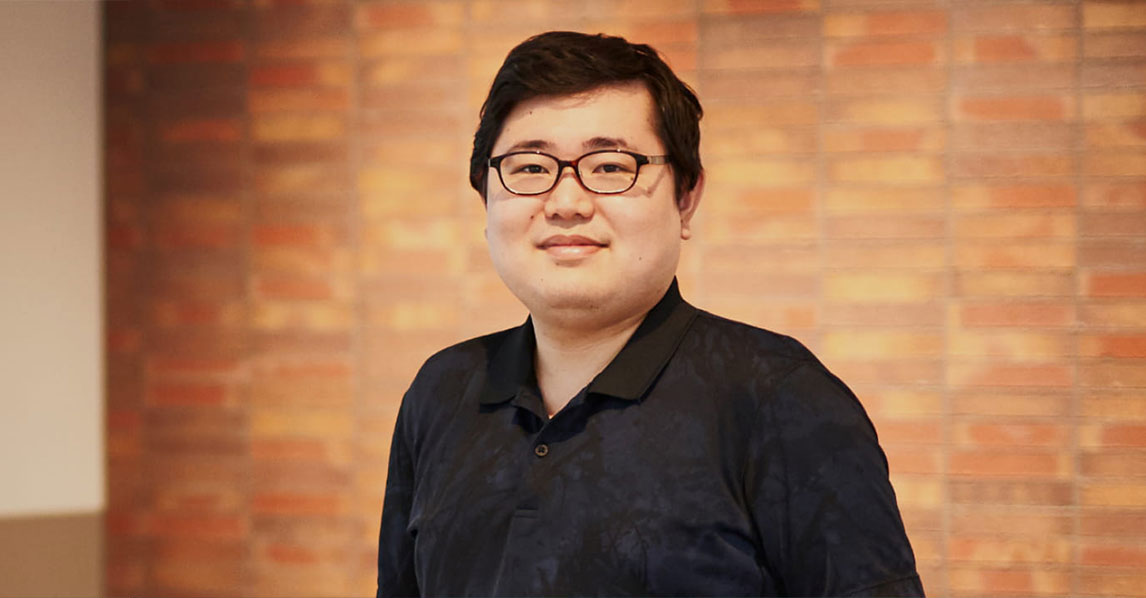 Hidetsugu Tamaki
Hidetsugu TamakiGrowth is driven by insights and experiences unique to "LINE " which are deeply rooted in users' lives.
Related interviews
-
 Yusuke Takeda
Yusuke TakedaSearch technology will continue to evolve! The thrill of developing one of Japan's largest search functionalities.
-
 Lee Yoonyoung
Lee YoonyoungI wanted to work for a company with the largest user base in Japan.
-
 Hidetsugu Tamaki
Hidetsugu TamakiGrowth is driven by insights and experiences unique to "LINE " which are deeply rooted in users' lives.

